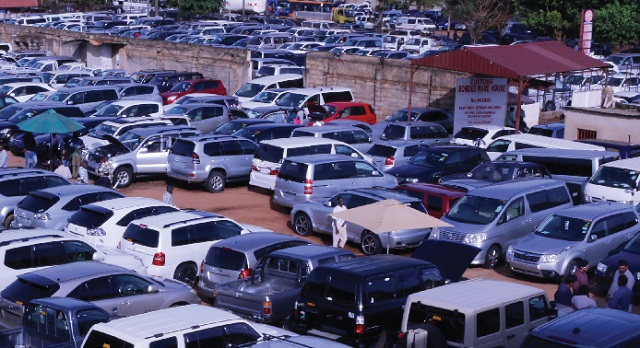
Gov’t could lose nearly Shs200bn annually; thousands of jobs at risk
Kampala, Uganda | JULIUS BUSINGE | Supporters of a ban on import of cars older than eight years would be much happier if the current law, The Traffic and Road Safety Act, 1998, is amended. But opponents, however, say it will deny majority of the population the ability to own cars for various purposes.
At the centre of this are economists, who think that government needs to carefully analyse the pros and cons prior to implementing the proposed plan. Prof. Augustus Nuwagaba, an economist and the executive director of Reev Consult told The Independent that government’s proposed move to ban the import of used cars should be backed by local production of vehicles at an affordable price to bridge the gap.
“Ideally the policy move is good,” he said. “But it is a complicated one that has to be implemented in tandem with transforming the economy through local industries.”
Last year, the government had planned to start car assembling through its established firm, Kiira Motors Corporation (KMC). Plans were that this year, about 305 vehicles are assembled and put on the market. But the progress towards realisation of this target is far from reality.
Speaking to The Independent in an interview, Onesmus Mugyenyi, the deputy executive director at Advocates Coalition for Development and Environment (ACODE), said the government should not rush the Bill, but should instead conduct research on the actual impact of used cars on the environment.
“In terms of vehicles contribution to greenhouse emissions, cars are insignificant compared to factories,” Mugyenyi said adding, “They [government] need to look at the biggest contributors like burning of charcoal and decomposing of biomass.”
A report by The United Nations Environment Programme (UNEP) released on March 13, 2018, tiled ‘Africa Vehicle Used Report’ generally portrays used vehicles as one of the contributors of air pollution.
Although it does not give specifics on the matter, it says countries should not only look at restricting imports but also shift to cleaner and safer used vehicle imports; ensure used vehicles contribute to better road safety, reduced emissions, and provide cost savings.
The report also calls for compilation and availability of data on used vehicles, harmonisation of policies at regional and sub-regional level in addition to addressing the illegal practices in the export of used vehicles and awareness raising on use of safer cars by the people.
According to the report, six nations account for 81.1% of Japanese used vehicle trade. Kenya is the major market followed by South Africa, Tanzania, Uganda, Zambia and Mozambique. Uganda imports about 50, 000 used cars per year. Out of the 50, 000 units, only 10% were manufactured in 2011 and later – the target models of government under the proposed amendments.
Similarly, research conducted by The Independent shows that most countries especially in the European Union still use vehicles of varied manufacturing dates. However, they restrict their movement to specific locations.
For instance, starting July 2016, drivers with cars made before 1997 are not permitted to drive in the city center on weekdays in Paris, France. If they do, they are fined, though they can drive there freely on the weekends.
In Barcelona, Spain, cars that are older than 20 years are banned from the roads during the week. The target is to cut traffic emissions by 30% in a period of 15 years.
In Britain, drivers in the London city centre whose cars do not meet European Union emissions standards pay a daily penalty of 10 pounds, ($13.20). That is on top of the congestion charge, which was put in place in 2003 and is now £11.50 per day ($15.6).
This comes as cities in other countries in Europe are proposing to ban diesel vehicles in order to combat air pollution, including Paris, Madrid, Mexico City, and Athens, which plan to ban diesel cars by 2025. The United Kingdom and France plan to ban sales of all fully-gasoline and diesel vehicles by 2040.
The good thing is that, in Europe and other advanced cities, authorities there can ably implement such plans as opposed to countries like Uganda that are still grappling with limited capacity and commitment to deal with such smart policy moves.
 The Independent Uganda: You get the Truth we Pay the Price
The Independent Uganda: You get the Truth we Pay the Price




Nicely written blog as it si quite helpful and informative